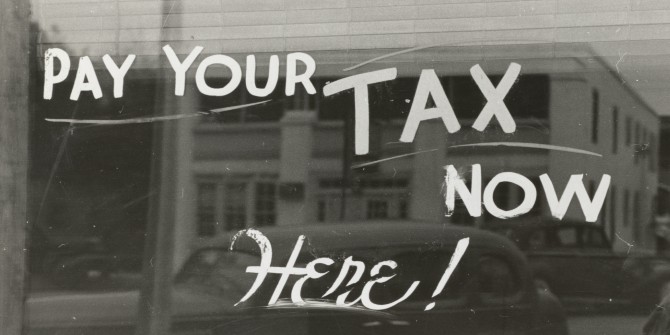 Guy Standing argues that we need a progressive charter to recover and revive our commons – including natural resources and social amenities – that are currently being privatised and exploited for commercial incursions.
Guy Standing argues that we need a progressive charter to recover and revive our commons – including natural resources and social amenities – that are currently being privatised and exploited for commercial incursions.
On November 6, 1217, two documents became the foundations of the British constitution, Magna Carta and the Charter of the Forest, the latter asserting that everybody had a right to subsistence, a right to a home and a right to work in the commons. The commons include natural resources – land, water, air, forests and woods, minerals and other resources in and under the land. They also include the social amenities, the civil commons in the institutions of common law, and the body of ideas bequeathed to us by the many generations before us.
Yet throughout history, elites and governments serving their interests have plundered our commons illegitimately, by enclosure and encroachment, and recently by privatisation and neglect through budget cuts under the name of ‘austerity’.
The modern plunder began with Margaret Thatcher, who launched the privatisation of council housing. This was popular with those who had council houses at the time, since they gained government subsidies to help acquire a property. But those houses belonged to the whole country, not just to specific occupants at the time.
Along with cuts to public spending on social housing, today we have two million fewer council housing units than in the 1980s. Coupled with that culling, the government has operated another scheme benefiting the rich in the form of ‘buy-to-let’ subsidies. As a result, housing has lost most of its commons character. There are now over two million landlords, many with numerous properties. Rents have soared, and the housing shortage has been worsened by the fact that foreign oligarchs have been buying posh properties as speculative investments and keeping them empty. It is a contrived shortage.
The shortage reflects a phenomenon first described in 1804 and known as the Lauderdale Paradox. The writer noted that as private riches grow, public wealth falls, since as the rich become richer they can buy up the commons and create ‘contrived scarcity’, pushing up the price for low-income people and reducing the availability.
This has happened to many parts of the commons. When Thatcher privatised water supply in 1989, she created private regional monopolies that could raise water prices while taking huge profits. The companies took the profits, loaded themselves with debt, and under-invested in maintenance and storage, leading to today’s situation in which more water is lost in leakages from old pipes and drains than reaches households.
Worst of all, instead of treating sewage, which would have a cost, they have deliberately poured untreated sewage into our rivers. Thames Water was convicted of pouring 1.4 billion tonnes of untreated sewage into Thames estuaries, killing fish, birds, other wildlife and threatening anybody who swims or drinks in the water. The company admitted it, was fined a tiny amount by comparison with their vast profits being sent abroad and then was allowed to continue. Southern Water has admitted to polluting rivers and beaches over a seven-year period, has been fined, nobody prosecuted and allowed to continue.
The Government’s Environment Agency has failed to do its job, slashing water quality inspections and allowing companies to give to charities of their own choice when found to have polluted rivers. As a result of all this, by 2019 for the first time, no single river in England and Wales was deemed safe for swimming or drinking.
Then there is the quiet privatisation of our forests. In 2011, the Conservatives and Liberal Democrats tried to privatise the Forestry Commission, which since 1919 has had responsibility for protecting forests and is our largest landholder. At the last moment, public protest made them stop. However, since then over 11,000 hectares of what had been commons have been sold by the Commission and it has leased huge tracts to a private commercial company to make extraordinary profits from renting out luxury cabins.
Then take parks. The eight Royal Parks were given to the nation in 1851 for everybody to use, as places for exercise, enjoyment of nature, recreation, rest and quiet. Since 2010, the government has slashed their maintenance budgets, leading to neglect and to renting out parts of them for commercial ‘events’, which leave the grass and amenities much the worse for wear.
The 27,000 public parks scattered across the country are also suffering decay due to huge budget cuts. In a survey in 2016 of park managers 92% reported their parks were deteriorating, and many were having to commercialise or sell land. Those parks belong to the commoners, all of us, and are not state property that can legitimately be sold. It is the commoners who suffer, especially lower-income people, who most need public spaces in which to live. The rich mostly have their own gardens.
Similarly, public libraries are part of the commons, many built in the 19th century for public use. Under the law, every local council has a statutory responsibility to operate a comprehensive library service. But the Conservative government has cut funds to such an extent that hundreds of libraries have been closed and hundreds more have pared back facilities to a bare minimum. This not only restricts access to books and information, particularly for lower-income people, but restricts the number of places where those needing to obtain state benefits can apply, now that it is an obligation to apply online. As many in the precariat do not have their own computers, this is vicious. First make people need access to a public computer, and then limit the access points!
The plunder of the commons extends to transport, with the closure of over 3,000 bus routes since 2010, along with the privatisation of the rail system. It extends to the limitations on regional theatre, on museums, on art galleries. It extends to the capture of the information commons by plutocrats and oligarchs who now control most of our media, and to the commodification and privatisation of ideas and inventions due to the globalisation of the US intellectual property rights system since 1994, as elaborated in the book on which this article is based.
The bottom line is that we need a progressive Charter of the Commons to recover and revive our commons, and in which to lay out a coherent plan to compensate the commoners – you and me – for the commercial incursions and theft of our commons. That Charter should conclude with the establishment of a national permanent Commons Fund, financed by levies on profits made by those taking advantage of the commons, and paying out to everybody Common Dividends, a form of basic income as a common right. It would be a transformative policy that is eminently feasible and affordable. It is a matter of common justice.
_________________
Note: the above draws on the author’s recent book, Plunder of the Commons: A Manifesto for Sharing Public Wealth, and on a presentation that will be made at the LSE on October 2. This event is linked the International Inequalities Institute’s new research theme, Wealth, Elites and Tax Justice, convened by Professor Mike Savage. The twitter Hashtag for Guy Standing’s event is: #LSEWealth
About the Author
 Guy Standing is Professorial Research Associate at SOAS, University of London.
Guy Standing is Professorial Research Associate at SOAS, University of London.
All articles posted on this blog give the views of the author(s), and not the position of LSE British Politics and Policy, nor of the London School of Economics and Political Science. Featured image: Pixabay (Public Domain).








Great article! But the plunder of council housing began a lot earlier. Councils were allowed to sell their stock from Housing Act 1936, and between 1957 and 1964 over 16,000 council houses were sold in England. The right to buy was also in the Labour manifesto of 1959. Typical property owning democracy stuff.